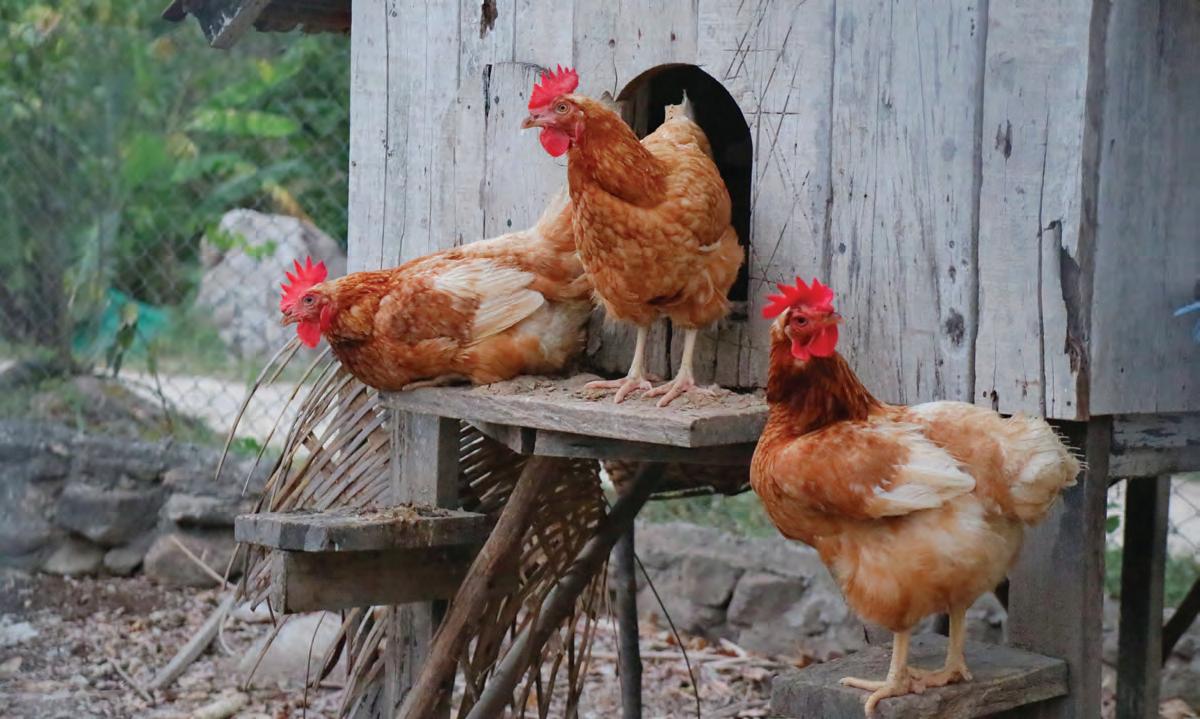
2 minute read
On the House
from 2022-11-CHEC
Caring for Animals and Pets, Efficiently
Energy considerations, inside and out
By Jonathan Susser
Q: We currently own a dog, a cat and a few chickens. We’re thinking about expanding our small backyard farm and adding a few more animals. What are some energy-related issues we should be mindful of when it comes to our animal friends and our monthly electric bill?
A: Energy demands for pet and animal care can be a bit sneaky and can increase your bill more than you realize. Awareness can go a long way toward cutting back your usage, saving you money each month and minimizing surprises.
Indoor pets If your indoor pets are big shedders, make sure you check and change the filter of your central heating and cooling system regularly. It will clog up more quickly with all that fur and then have to work harder to effectively circulate air. We’ve also seen people covering up supply vents with food bowls — try to avoid that if possible so you don’t restrict airflow.
If you have a pet door, make sure it fits well to prevent conditioned air from escaping your home (and critters from entering). Also, leaving the TV or lights on for your pets while you’re out and about can add up over time.
Outdoor livestock Much of the energy use for farm animals comes from lighting, heat and water. Lighting is critical for raising chickens, so consider using energy-efficient LEDs in place of incandescent bulbs and other lighting technologies in poultry houses (and other livestock barns). They’ll save you money, give off less heat and last longer without affecting productivity. LEDs are also a good option if you have outdoor lighting for safety and security.
Larger farm animals, such as horses and cows, require a lot of water for hydration and care. Properly insulated and correctly sized (for the number of animals) livestock waterers will reduce energy consumption. If using water bowl heaters, unplug them when heat is no longer needed. You may even be able to take advantage of energy-free livestock waterers, which don’t rely on any electricity.
If you have a dedicated hot water spigot line to rinse off equipment, wash pets or clean structures, keep in mind that it consumes energy in addition to water — both through the cost to power a well pump, as well as the cost to heat the water.
Effective ventilation is another essential component of managing all types of farms. Replacing older singlespeed ventilation fans with high-efficiency (single-, multi-, variable-speed) models can provide energy and cost savings. Aim to keep fan blades and screens clean, as dust, feathers and other matter will stick to them and obstruct airflow.
As you might with other new technologies, be sure to reach out to friends, neighbors and your local co-op staff for recommendations, price options and incentives as you keep your home and farm healthy and productive.









